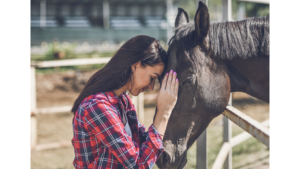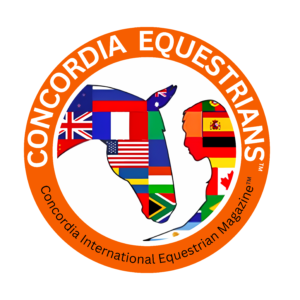PERCEIVE WITH KINDNESS
By Graeme Green
This article is also published in Issue 8 of CONCORDIA INTERNATIONAL EQUESTRIAN MAGAZINE
There is a famous Zen koan* called “Empty your Cup” that tells of a Buddhist scholar going to visit a venerable Master and being so excited that he just keeps talking about his personal knowledge, wisdom and learning that he never stops to hear the words of the Master. The Master takes up a teapot and starts to pour a cup of tea while he is talking and just keeps pouring even once the cup is full. Tea goes everywhere.
The tea being poured everywhere is a metaphor for the scholar, he is so “full of himself” in his self that there is no room or space for him to learn from the experience of visiting the Master.
How often is this us before our horses. So full of what we know about horses, of how we think that horse should be, and what we have to do to achieve that. How often are we so concerned with what the horse needs to be that we fail to see her at all.
To let go of expectation
I think that most of us would agree that most horses allowed to be horses are pretty good at being horses. But how many of us honestly seek or allow that in our horses?
As I wrote in my previous column, we often unconsciously, and with the best of intentions, seek the horse that fits our needs. With that horse comes the entourage of experts who we engage to help us achieve our aspirations.
These aspirations carry expectations. One key element of mindfulness as described by scholar Jon Kabat-Zinn is “non-striving”; the striving mind is restless and never satisfied, its expectations are forever one more learning, one more expert away. The sentient being before us becomes lost in objectives – I can’t count how many times people have described their horses to me as a “project”.
One of the fundamental elements of a mindful practice is equanimity. Equanimity is to perceive without attraction; without aversion; and without attaching to self. Equanimity respects how things are. What would it mean to hold the horses in a state of equanimity?
This is hard, because it challenges us to let go of what we know, let go of our knowledge and our often long-learned expertise. To let go of our expectations, and often that of others’ too, in what is often quite a socially judgemental environment. Such behaviour demands profound levels of personal courage.
To perceive with Kindness
Psychologist and Author of “The Compassionate Mind” Paul Gilbert admonishes us to recognise the courage that compassion requires. As compassionate equestrians we have to be able to see beyond our experience, to see through accepted frames of reference and perception, and to challenge the hard boundaries of established practice and wisdom.
Compassion is an empathetic quality that acknowledges another’s state of being, as such it calls for respectful and considerate interaction. It requires an equanimous foundation that can set aside “what we know” in favour of “what is before us.” Like the Zen scholar in the opening paragraph, if we cannot let-go of our ego, we are already full. And there is no room to learn or grow.
I am not arguing against expertise, but I suggest that expertise, in its striving towards expectation, too often denies the individual’s voice or needs (human or horse). Before we engage with our objectives, we must first be able to perceive with kindness, acknowledge the expertise of the sentient being before us. Only then does our expertise engage, but it then does so as a positive complement to the voice of the horse. This is compassion.
* A Zen koan is a short philosophical challenge that encourages to meditate on the different levels of meaning in a simple short statement.

This article is also published in Issue 8 of CONCORDIA INTERNATIONAL EQUESTRIAN MAGAZINE
